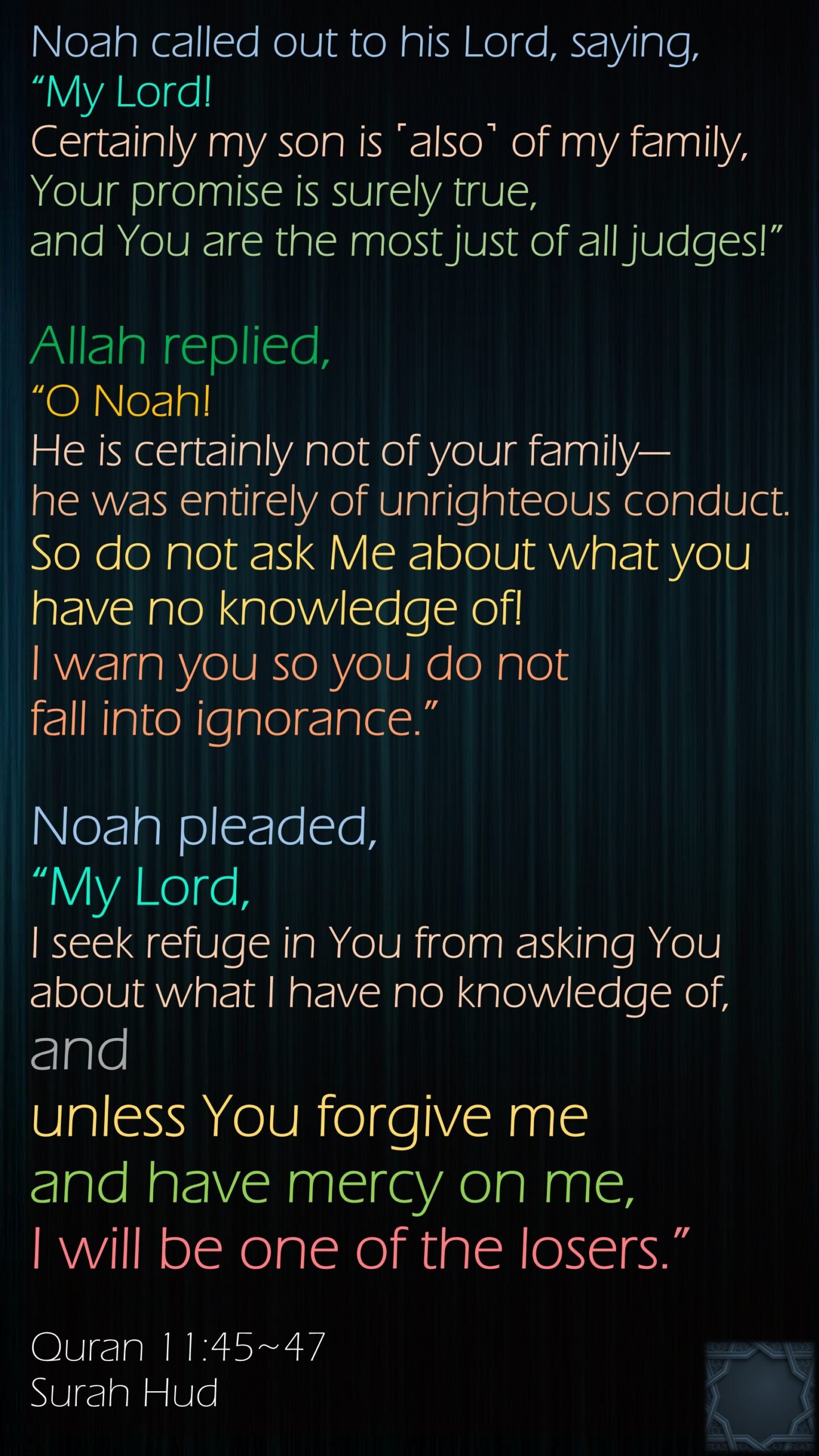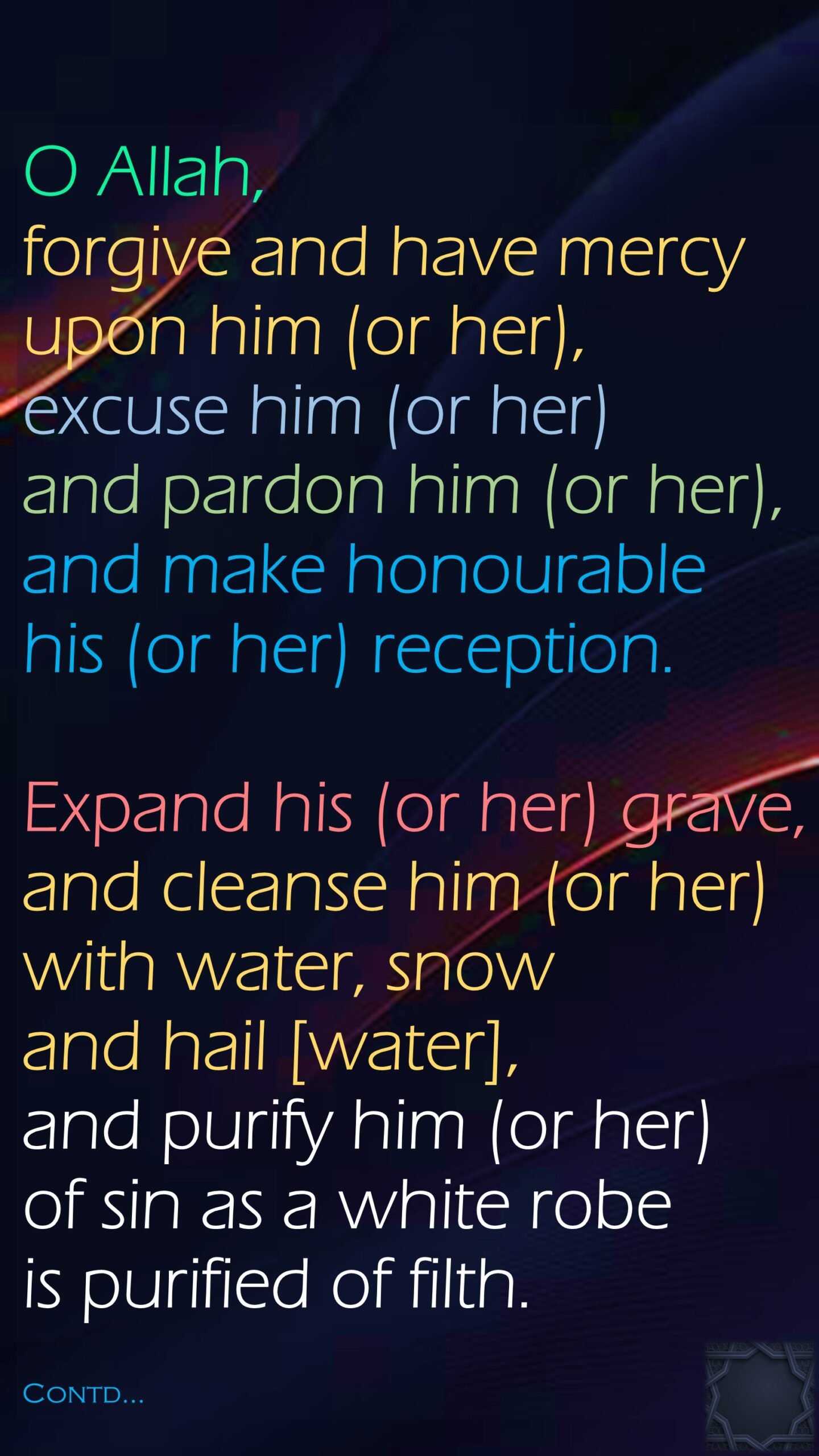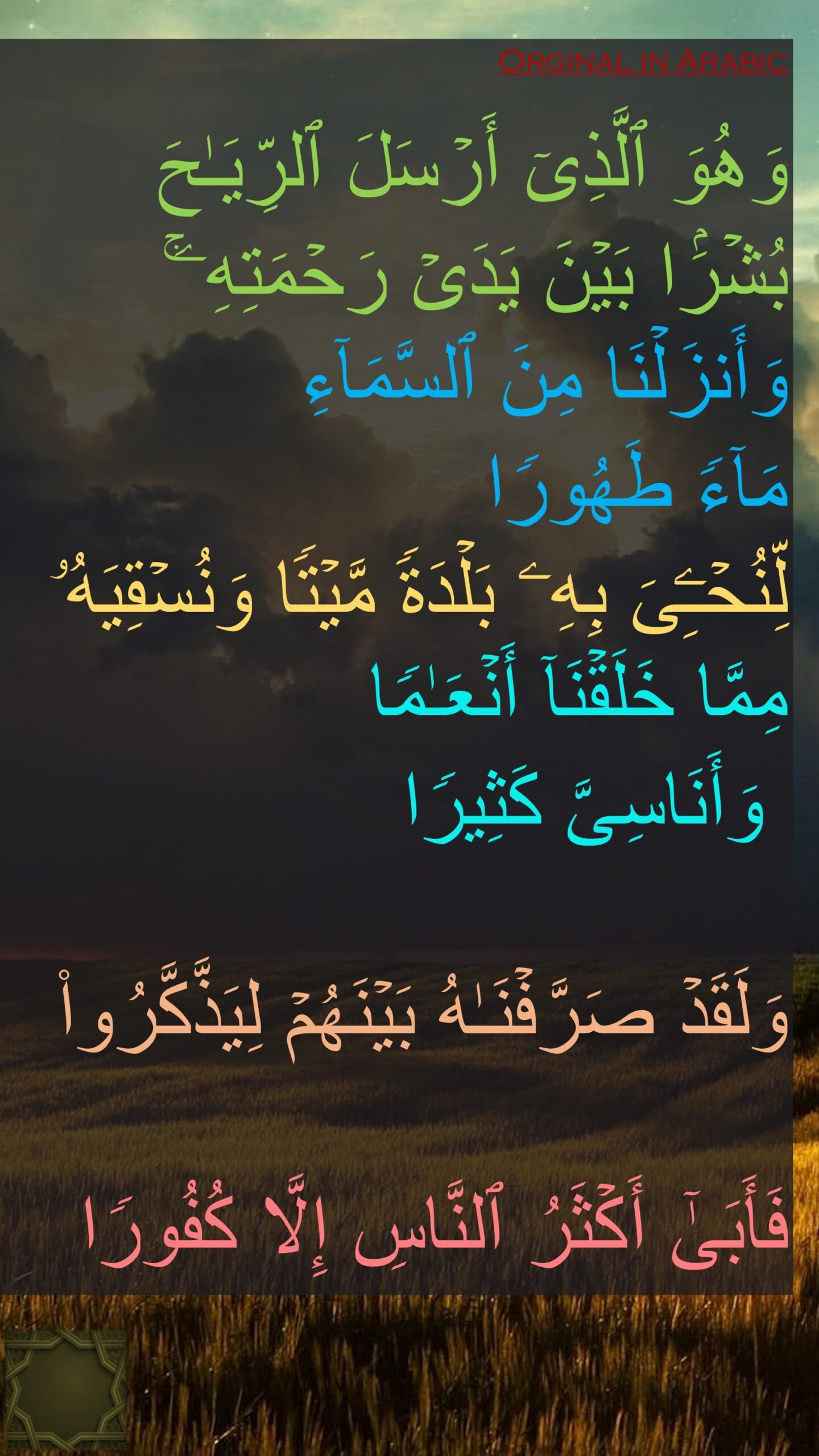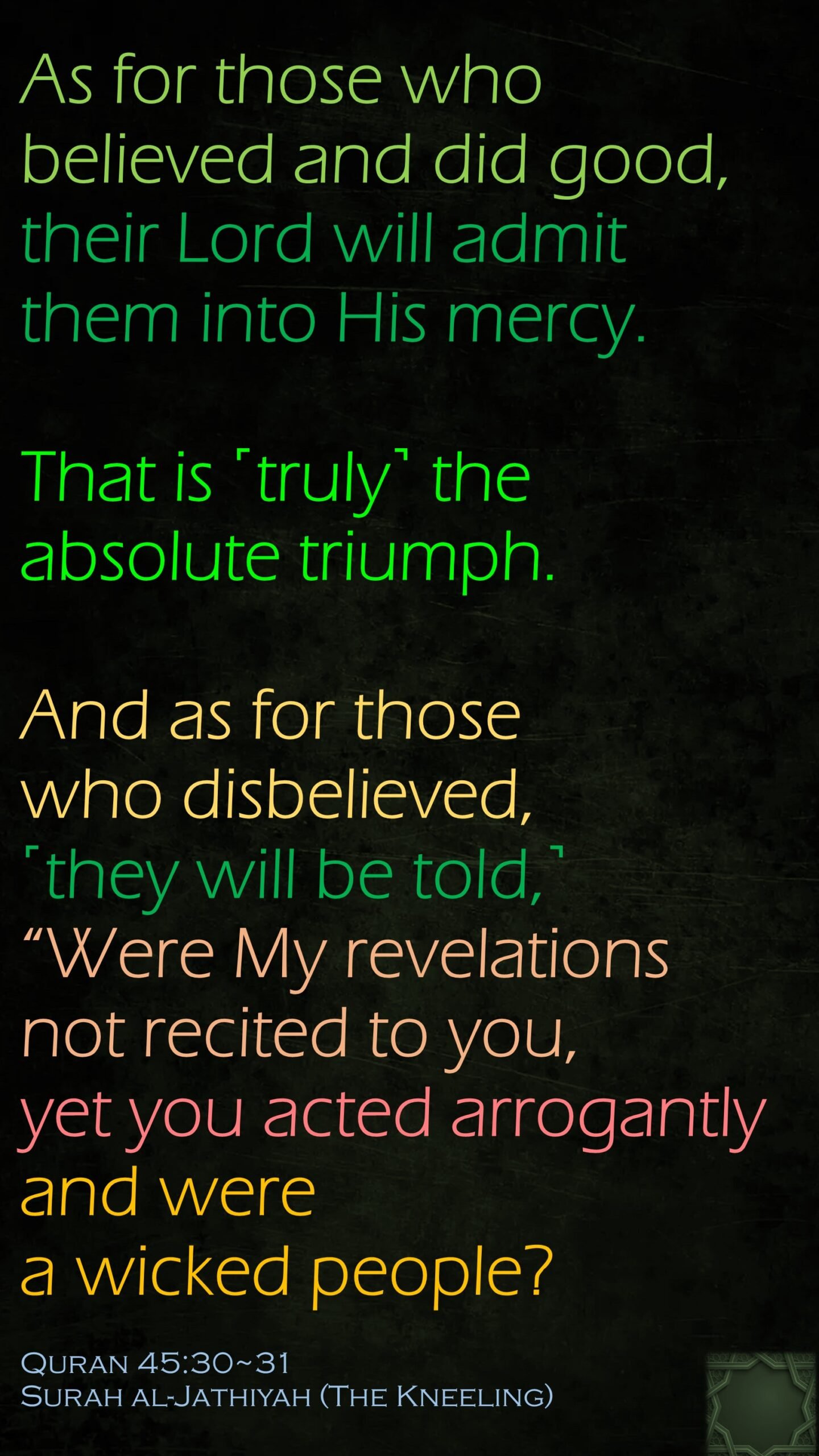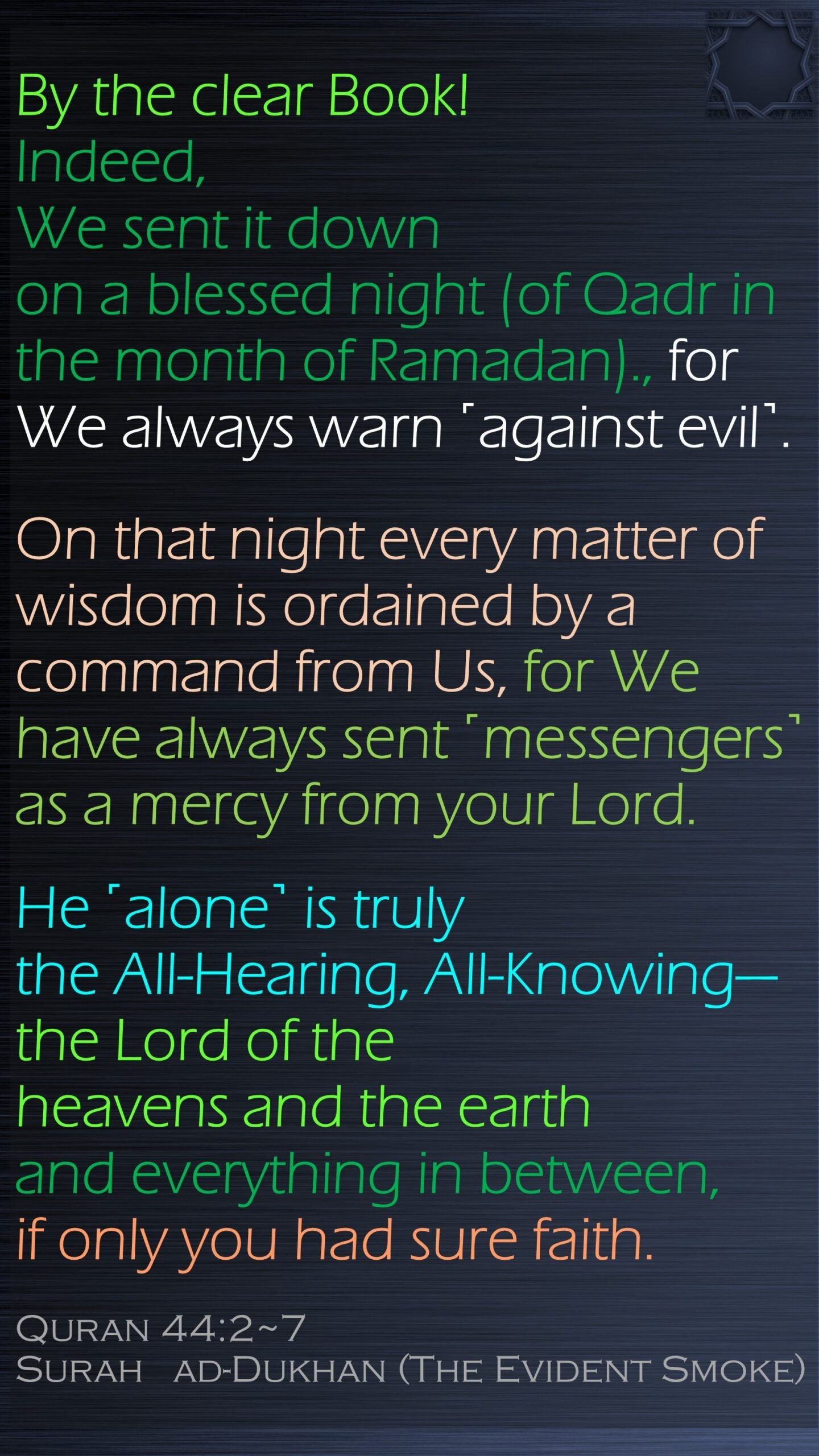Skip to Content
Tag Archives: Mercy
- Home -
- Posts tagged "Mercy"
( Page4 )
19
Oct, 2024
Islam, Quran
007, 155, 156, alms-tax, anger, ayat, believe, daily, deeds, destroy, Deuteronomy, encompass, evil, Exodus, foolish, forgive, Genesis, good, Guardian, guide, Hebrew Bible, inflict, inspirations, instruction, islam, islamic, koh-e-Tur, Leviticus, Mercy, Moses, Muhammad, Musa, Numbers, ordain, original, Prophet, quran, repentance, revelations, shun, shun evil, stray, Surah, Tablets, teaching, test, Toraat, Torah, torment, toʊrə, tɔːrə, turn, un-altered, Zakat, תּוֹרָה Tōrā
25
Sep, 2024
Islam, Quran
011, 45, 47, ayat, daily, drown, family, forgive, Hud, ignorance, inspirations, islam, islamic, know not, knowledge, loser, Mercy, Muhammad, Noah, not, Nuh, plead, quran, refuge, son, Surah, unrighteous conduct
23
Sep, 2024
Hadees, Islam
admit, Allah, Allahhuma, daily, exchange, excuse, expand, family, female, filth, fire, forgive, funeral, garden, garment, grave, hail, Heaven, her, His, home, honorable, ice, inspirations, islam, islamic, Jannah, male, man, Mercy, Muhammad, pardon, prayer, Punishment, purify, quran, reception, robe, spouse, supplication, torment, Water, white, woman
30
Jul, 2024
Islam, Quran
025, 48, 49, 50, Allah, animal, creation, Criterion, daily, denial, Furqan, human, inspirations, islamic, land, Life, lifeless, Mercy, mindful, Muhammad, quran, rain, Sign, sky, Surah, usher, Water, wind
15
Jul, 2024
Islam, Quran
2, 3, 35, All-Wise, Allah, Almighty, ayat, creator, daily, delude, earth, Fatir, favour, heavens, hold back, humanity, inspirations, islam, islamic, Mercy, Muhammad, provision, quran, remember, Surah, truth, withold, لَاۤ إِلَـٰهَ إِلَّا هُوَۖ
28
Jun, 2024
Islam, Quran
30, 31, 45, act, admit, al-Jathiyah, Allah, arrogant, ayat, believe, daily, disbelieve, inspirations, islam, islamic, kneel, kneeling, Lord, Mercy, Muhammad, quran, revelations, Surah, triumph, true, wicked
10
Jun, 2024
Islam, Quran
44, ad-dukhan, All-Hearing, All-Knowing, Allah, Blessed, book, clear, daily, earth, evident, evil, Faith, guidance, heavens, inspirations, islam, islamic, Mercy, Muhammad, night, Qadr, quran, Ramadan, Ramazan, smoke, Surah, sure faith, warn
3
Jun, 2024
Islam, Quran
afflicted, ayat, daily, deliver, evil, Hand, inspirations, islam, islamic, keeper, Mercy, message, Muhammad, prideful, Prophet, quran, Surah, the message, totally, ungrateful
25
May, 2024
Islam, Quran
Allah, ash-Shura, ayat, counsel, daily, give up, Guardian, hope, inspirations, islam, islamic, Mercy, Muhammad, praise, praiseworthy, quran, rain, spread, Surah
2
May, 2024
Islam, Quran
Allah, ayat, Benjamin, BinYamin, Chapter 12, daily, Faith, hope, inspirations, islam, islamic, Jacob, Joseph, lose, Mercy, Muhammad, quran, Surah, verse 87


